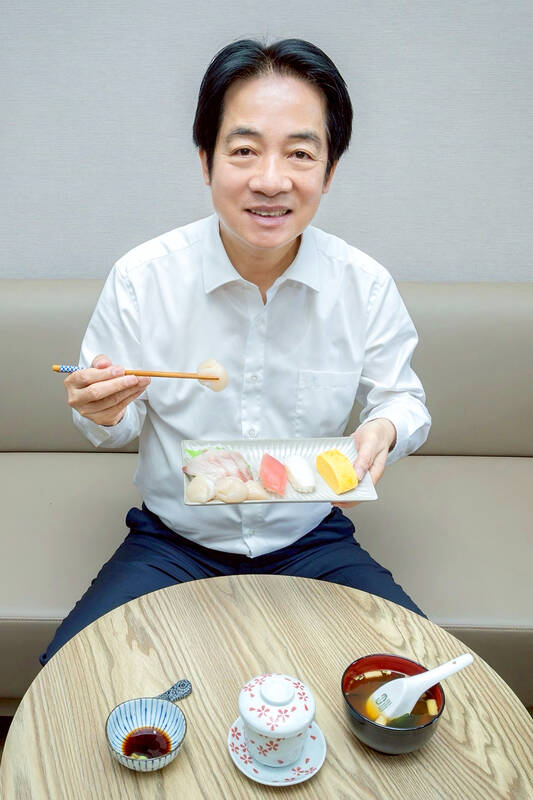The Western media once again enthusiastically forwarded Beijing’s talking points on Japanese Prime Minister Sanae Takaichi’s comment two weeks ago that an attack by the People’s Republic of China (PRC) on Taiwan was an existential threat to Japan and would trigger Japanese military intervention in defense of Taiwan. The predictable reach for clickbait meant that a string of teachable moments was lost, “like tears in the rain.” Again.
The Economist led the way, assigning the blame to the victim.
“Takaichi Sanae was bound to rile China sooner rather than later,” the magazine asserted. It then explained: “Japan’s new prime minister is an outspoken nationalist with a reputation as a China hawk.”

Photo: Reuters
Similarly, BBC World stated on X: “How the Japan PM’s Taiwan remarks provoked the fury of China.”
ABC news of Australia also put the blame on the PM: “Comments from Japan’s Prime Minister Sanae Takaichi last week about a possible attack by Beijing on Taiwan have sparked a furious response from Chinese officials.”
Bloomberg forwarded an entire article on the theme of Takaichi’s perfidy: “New premier Takaichi has stoked fresh tensions with Beijing with her recent remarks on Taiwan,” the lede blared. “In Beijing, there’s anger and concern over Taiwan-related remarks made by Japan’s new prime minister, Sanae Takaichi,” the first sentence of the article said. What was there for Beijing concerned about? Takaichi had done nothing more than state aloud what everyone understood Japan’s policy to be.

Photo: AFP
Apparently, rising PRC bellicosity is not an explanatory factor in the recent spat between Japan and the PRC, just the politics of the Japanese PM. As Swedish journalist Jojje Olsson wrote on X, blaming “Takaichi for being the first Japanese PM to make such comments regarding Taiwan, fails to take into account that China has never been acting in a more threatening manner towards Taiwan.”
Any of them could have lead with something more honest: “The PRC was bound to attack Takaichi sooner or later” and then explained that PRC ire is a calculated attempt to hurt Takaichi domestically and perhaps get her removed. Or the international media could have framed the issue as Beijing “choosing to trigger a spat” over Takaichi’s words, affirming PRC agency. After all, for the PRC, temper tantrums are strategy.
Several people on X and Bluesky, including this writer, pointed that out. Of course, we have been paying attention to who is the aggressor and who is the victim, and have watched the PRC play this game with the last two presidents in Taiwan. The PRC similarly responded to Taiwanese resistance to PRC aggression by cutting tourists and blocking fruit and fish imports from Taiwan.
Blaming Takaichi also removes agency from Beijing. A variant on that is to describe events without naming actors: “tensions rose” (who spiked them? No one knows), or “the confrontation flared” (confrontations have their own independent agency, the nations involved lack any agency of their own).
Moreover, if Beijing did not plan on war, why be angry? Beijing could have seized the moment to laugh, express regret for the PM’s words and emphasize how its plans for Taiwan annexation are entirely peaceful and force is only a last resort. Once again, we are just lucky that the PRC has no idea how soft power works.
Consider Beijing’s response of reducing trade, a tactic also used against Australia and Lithuania, among others. Slashing tourists is a perfectly safe move. The Japanese will not miss the PRC tourists, who are widely despised, as other tourists will step in to fill the gap. Meanwhile — as no one appeared to report — the PRC reduces its imports by reducing outbound tourism. The PRC also blocked Japanese seafood, another reduction in imports, and blocked the entry of two Japanese films. It is almost as if the PRC were reducing external outflows by concealing this signal of economic distress behind a barrage of expansionist ire.
According to the Guardian, Chinese state media called Takaichi’s remarks “dangerously provocative.” Right from the horse’s mouth: Beijing itself has indicated that if a media organ claimed Takaichi had provoked China, then it was forwarding Beijing’s own words. Which is odd, because the Guardian’s lede said “Japan’s hawkish new PM has angered Beijing.” As usual, nothing Beijing does ever angers Western media, nor do its grayzoning, cyberattacks, and expansionism ever “provoke” other nations.
Another effect of Beijing’s sustained media blitz was to obscure the way that Takaichi had clearly stated what Japan would do in a PRC invasion, reshaping the discussion around Taiwan’s defense. If Japan is openly and publicly committed to helping Taiwan, that would help silence pro-Beijing voices in Taiwan that want defense spending suppressed and boost support among the Taiwan public for defending the nation. She also prodded the administration of US President Donald Trump.
Takaichi helped in another way. Those of us out here for many years are well aware that the PRC wants Okinawa, though it seldom says so in public. Both PRC and Japanese media reported last week on a major Chinese paper’s editorial questioning whether Okinawa really belongs to Japan, thus making public Beijing’s designs on the island. The editorial called for “more research,” apparently a euphemism for a more robust set of historical fictions.
Moreover, the PRC once again sent ships through the Senkaku Islands — known as the Diaoyutai Islands (釣魚台) in Taiwan — that the PRC also seeks to annex. Ironically, Takaichi spurred the PRC to confirm one way a Taiwan crisis is existential for Tokyo: the next move after Taiwan is against Japanese territories. Taiwan and PRC claims on Japan are interrelated.
Beijing’s attack on Takaichi even got the Mayor of Ishigaki Prefecture, a place with old trading links to Taiwan in the small islands to the east, to say that he strongly supports that Taiwan is a country.
This episode shows yet again two intermingled problems the international media presents to those Asian nations attempting to resist PRC expansionism. First, the international media almost always treats resistance as a “provocation.” The behavior of the belligerent power vanishes, masked by the lack of agency assigned to the great power in media narratives. Reading many of the narratives produced in the last two weeks on the crisis the PRC is manufacturing, it is difficult to find a clear answer to a simple question: why are there tensions?
Tensions exist in part because the PRC uses them to manage the media and the stories and people who appear in it. This event is a textbook example of that — the PRC exploits the media circus it has created to put pressure on Takaichi, making journalists and editors into its tools.
Second, small nations are never taken seriously as nations in the Western media. In this context, the small nation is Japan. Although the PRC threatens Japanese territories and the territories of its neighbors and friends, it is Beijing that was described as “concerned” and Beijing’s “feelings” and words that were given pride of place.
Meanwhile, lost in the noise, another “small” nation, the Philippines, saw the PRC threat at its Thitu Island in the South China Sea suddenly spike. A longtime commentator on the area, Ray Powell, observed on X last week that in the three days prior to his post, “The number of CN ships broadcasting automatic information system (AIS) signals in the Thitu/Subi area has swelled from 4 to 31.”
Missed that? Another success of this spat engineered by the PRC.
Notes from Central Taiwan is a column written by long-term resident Michael Turton, who provides incisive commentary informed by three decades of living in and writing about his adoptive country. The views expressed here are his own.

Towering high above Taiwan’s capital city at 508 meters, Taipei 101 dominates the skyline. The earthquake-proof skyscraper of steel and glass has captured the imagination of professional rock climber Alex Honnold for more than a decade. Tomorrow morning, he will climb it in his signature free solo style — without ropes or protective equipment. And Netflix will broadcast it — live. The event’s announcement has drawn both excitement and trepidation, as well as some concerns over the ethical implications of attempting such a high-risk endeavor on live broadcast. Many have questioned Honnold’s desire to continues his free-solo climbs now that he’s a

Lines between cop and criminal get murky in Joe Carnahan’s The Rip, a crime thriller set across one foggy Miami night, starring Matt Damon and Ben Affleck. Damon and Affleck, of course, are so closely associated with Boston — most recently they produced the 2024 heist movie The Instigators there — that a detour to South Florida puts them, a little awkwardly, in an entirely different movie landscape. This is Miami Vice territory or Elmore Leonard Land, not Southie or The Town. In The Rip, they play Miami narcotics officers who come upon a cartel stash house that Lt. Dane Dumars (Damon)

Francis William White, an Englishman who late in the 1860s served as Commissioner of the Imperial Customs Service in Tainan, published the tale of a jaunt he took one winter in 1868: A visit to the interior of south Formosa (1870). White’s journey took him into the mountains, where he mused on the difficult terrain and the ease with which his little group could be ambushed in the crags and dense vegetation. At one point he stays at the house of a local near a stream on the border of indigenous territory: “Their matchlocks, which were kept in excellent order,

Jan. 19 to Jan. 25 In 1933, an all-star team of musicians and lyricists began shaping a new sound. The person who brought them together was Chen Chun-yu (陳君玉), head of Columbia Records’ arts department. Tasked with creating Taiwanese “pop music,” they released hit after hit that year, with Chen contributing lyrics to several of the songs himself. Many figures from that group, including composer Teng Yu-hsien (鄧雨賢), vocalist Chun-chun (純純, Sun-sun in Taiwanese) and lyricist Lee Lin-chiu (李臨秋) remain well-known today, particularly for the famous classic Longing for the Spring Breeze (望春風). Chen, however, is not a name